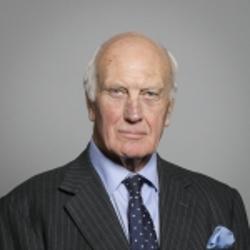
1 APPG Officer Position (as of 12 Jan 2026)
Listed Properties3 APPG Memberships
Greece, Christians in Parliament, Explosive Weapons and their Impact3 Former APPG Officer Positions
Explosive Threats, Republic of Iraq, Shooting and Conservation
Deputy Speaker (Lords)
5th Mar 2018 - 11th Mar 2022
Deputy Chairman of Committees (Lords)
8th Jul 2015 - 11th Mar 2022
Lord Speaker's Advisory Panel on Works of Art
25th Jan 2017 - 23rd Oct 2019
Committee for Privileges and Conduct (Lords)
3rd Nov 2015 - 9th May 2019
Works of Art Committee (Lords)
8th Jun 2015 - 31st Aug 2016
European Union Committee
24th Nov 2009 - 14th May 2014
Rookery South (Resource Recovery Facility) Order 2011
25th Jun 2012 - 13th Feb 2013
Division Voting information
During the current Parliament,
Lord Dear has voted in 0 divisions, and
never against the majority of their Party.
View All Lord Dear Division Votes
Debates during the 2024 Parliament
Speeches made during Parliamentary debates are recorded in Hansard. For ease of browsing we have grouped debates into individual, departmental and legislative categories.
Sparring Partners
View All Sparring PartnersDepartment Debates
View All Department DebatesLegislation Debates
Lord Dear has not made any spoken contributions to legislative debateLords initiatives
These initiatives were driven by Lord Dear, and are more likely to reflect personal policy preferences.
Lord Dear has not introduced any legislation before Parliament
Lord Dear has not co-sponsored any Bills in the current parliamentary sitting
Lord Dear has not asked any Written Questions in the current parliament